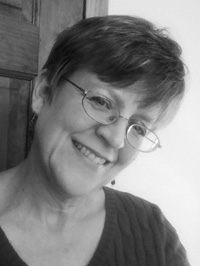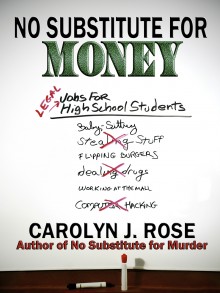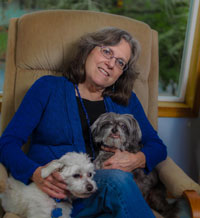Made It Moment: Sandra Hutchison
As some of you know, I gave thirteen years of my life to reaching the starting line, to getting a book on the shelf. This Moment contains a partial explanation of why. I first met the author, Sandy Hutchison, at a writers retreat and workshop in the Berkshires. To say that this experience was strange–and momentous–is not to get at all its uniqueness and color. I left with friends who are dear to me after almost a decade, and Sandy is one. When you finish reading, I think you will understand why. Writing is a business of some talent, a lot of perseverance, and most of all, heart. Sandy’s got all three, and I feel privileged to share this Moment, and her friendship.
My “made it moment” has nothing much to do with success as a writer. I’m still working on that. But it has brought me a different kind of success.
I wrote the first draft of The Awful Mess: A Love Story over a decade ago, during the debate over the first openly gay Episcopal bishop, Gene Robinson. It was read by a number of agents, and I was told it was a good book, but a hard sell. So I put it away and moved on to the next one.
Still, writing it soon changed my life for the better.
You see, my heroine Mary gets into an awful mess that includes a job loss, a mortgage she can no longer afford, and a scandalous pregnancy perfecty timed to destroy a promising new relationship. Throw in her unraveling ex-husband and eventually even her life is at risk. (It’s a twist on The Scarlet Letter, actually, but you don’t need to know that to enjoy it.)
When she’s at her most isolated, Mary takes an older friend’s advice and starts volunteering in a local food pantry. And she finds great satisfaction in doing so, even as she dreads the day she’ll need help herself.
Now, I’m as prone to fantasizing about my imminent success as any writer. One day in the shower, I found myself wondering what I would say if an interviewer asked me about my own volunteer efforts.
Um… would PTA and Sunday School count?
Damn. My heroine was doing more for her community than I was. How embarrassing!
Not long after, a small piece in the local advertiser caught my eye. A food pantry needed regular volunteers. So I went to their open house, and I signed up for a regular shift.
Like most volunteers, and like Mary, I soon discovered that I got way more out of it than I gave. Perhaps most of all, I got to feel a part of my community in ways I never had before. (How did she figure that out before I did? I wrote her! Kind of weird, that.)
Anyway, I also got to see up close how many families are struggling. Yes, sometimes people are just messed up. An occasional client clearly feels entitled. But most often, we help people who are having difficult transitions between jobs or homes or relationships or illnesses or disabilities or whatever. Or we see people working over forty hours a week and finding that it’s simply not enough to pay for food, utilities, transportation, and health care. In all cases, the groceries we give — a week’s supply per month at most — simply help to tide them over.
That’s why during September, which is Hunger Action Month, I’m dedicating my net book earnings for the the month to Feeding America via this virtual campaign page.
This is coinciding with a special 99-cent offer for The Awful Mess: A Love Story (Sheer Hubris Press, June 2013). (Yes, I recently decided to publish it myself. You can sample early chapters free on the book’s Amazon page).
Naturally, I’m also hoping this promotion will help me get the word out about this ebook. Here’s my request: If you give it a try while it’s at this bargain price, and enjoy it, would you consider donating a little something in non-perishables to your local food pantry (or Feeding America, or another charity that helps people who are food-insecure)?
Heck, would you consider contributing something even if you never look at my book? There are families in your community or somewhere not too far away that need that help right now.
And thank you, Jenny, for letting me share this. (This lovely blog is clearly another example of helping others!)
For two decades, Sandra Hutchison’s career has shifted between teaching, writing, editing, marketing, and advertising, all of which she enjoys. She founded Sheer Hubris Press in 2013 in order to publish her novels and try using all of these skills at the same time. (With a few months under her belt now, she doesn’t necessarily recommend that you try this at home.)
Born and raised in the Tampa Bay area, Sandra survived a snowy December transplant to Greenfield, Massachusetts in high school and has stayed in cooler climes ever since. She is a graduate of the University of Massachusetts at Amherst and has an MA in fiction writing from the University of New Hampshire. She currently lives with her husband and son outside of Troy, New York, where she teaches writing at Hudson Valley Community College.








